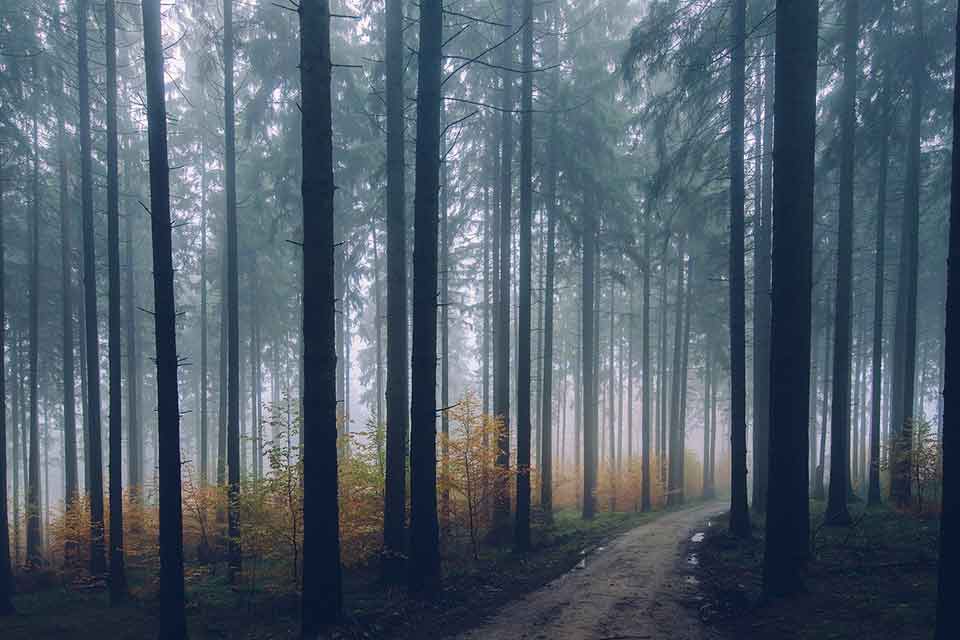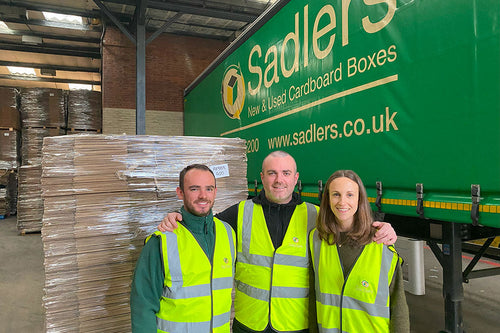Are you on the search for eco friendly packaging in the UK?

You probably won't be surprised to learn that UK web searches for eco packaging have been growing steadily over the last five years, but did you know that COVID-19 rapidly accelerated the growth of those seeking sustainable packaging?
This is a fascinating development, particularly as eco products tend to be more expensive (this doesn't apply to cardboard boxes as I'll explain later) - you would expect businesses and consumers to be looking at cutting costs.
Typically, when economic difficulties hit, environmental considerations fall to the bottom of the priority lists for businesses. A global pandemic appears to have changed that. Could media outlets really be speaking the truth when they talk of an emerging green economy? The search trends certainly seem to be backing this up.
Types of compostable and biodegradable packaging
PLA
 PLA, or polylactic acid, is a biodegradable packaging material made from plant starch and designed to replace plastic cups and cold food containers. It is an excellent replacement but can't be used for warm or hot food and drink as the material cannot be subjected to heat.
PLA, or polylactic acid, is a biodegradable packaging material made from plant starch and designed to replace plastic cups and cold food containers. It is an excellent replacement but can't be used for warm or hot food and drink as the material cannot be subjected to heat.
Bamboo packaging
The fastest growing plant in the world was found to be a species of bamboo, and anyone who has ever grown bamboo in their garden will know how out of control it can get. This makes it a highly sustainable material not only for how fast it grows but for how well it grows in different climates. Bamboo is fast becoming a popular material for packaging; typically used for product packaging to replace wood, plastic and polystyrene.
Mushroom packaging
Made from fungus roots and farming residues, mushroom (mycelium) packaging is designed to replace styrofoam trays, containers and packing peanuts. The material is biodegradable, compostable and sustainable. Mycelium forms a large underground network and mushrooms are only the tip of the iceberg.
 Did you know that the largest organism on earth is a fungus? One specific honey mushroom fungus found in Washington State, US spans 2.5 square miles. [Source: BBC]
Did you know that the largest organism on earth is a fungus? One specific honey mushroom fungus found in Washington State, US spans 2.5 square miles. [Source: BBC]
Paper and cardboard packaging
Using paper and cardboard is a biodegradable and recyclable way to reduce plastic at low cost. However, not all paper and cardboard packaging is environmentally-friendly. Considerations when buying paper or cardboard packaging:
- Is it brand new? If so, it may be from sustainably managed forests, but is not classed as eco packaging. If it is brand new and not sustainably-managed, it should be avoided where possible.
- Is it recycled? Recycled material has been used and then re-manufactured. It can be a resource-intensive process and should only be considered if the packaging absolutely must be new (for example, food-grade packaging).
- Is it used and reusable? Even better. This is the true essence of eco friendly packaging. We sell a large range of used boxes because we believe in the importance of reuse.
How can you buy environmentally friendly cardboard boxes at low cost?
I mentioned above that eco products are almost always higher in price than their traditional counterparts. It's often because a sustainable alternative will be newer, with higher technological and logistical costs, or sold in lower volumes owing to the niche market they reside in.
However, used and redundant boxes sold for reuse are in high demand (not niche), and the market is well-established - Sadlers for example have been diverting boxes and packaging to reuse since the 1950s. This means there are no high technological costs; in fact it's a low-tech solution - perfect! Logistically speaking, diverting boxes to reuse requires a lot of experience and infrastructure, but that infrastructure is already in place.
In addition, due to logistical constraints, sustainable packaging such as once-used cardboard boxes have a lower CO2 footprint because the distance they have travelled to get back into the market is fairly low. Large distances would not be viable. People talk about 'food miles' and the environmental benefits of buying edibles locally; we aim to keep 'box miles' down to a minimum applying the same principles. Because of this, the boxes are a much cheaper and more sustainable alternative.



Recap
To recap, here are the reasons why eco packaging does not have to cost the earth when it comes to cardboard boxes:
- Low mileage during transport
- Existing infrastructure
- Low technological requirements
- Cheap material
- Used and reusable
- Recyclable
- Compostable
- Biodegradable
- Good supply and demand
Author: Lauren Sadler
Featured Articles

December 03, 2025
Options for Recycling Cardboard Boxes
How to recycle cardboard waste: a guide for business and the home The principles of recycling have b...

November 27, 2025
We are WINNERS of a National Recycling Award!
We're thrilled to announce a big win at the MRW National Recycling Awards 2025! Our pioneering cardb...

October 08, 2025
We’ve been shortlisted for the National Recycling Awards!
We’re excited to announce that we’ve been shortlisted in the circular economy category at the Nation...

July 17, 2025
Sadlers becomes Sustainability West Midlands Member
Back in February this year we made the decision to join the Sustainability West Midlands network whi...